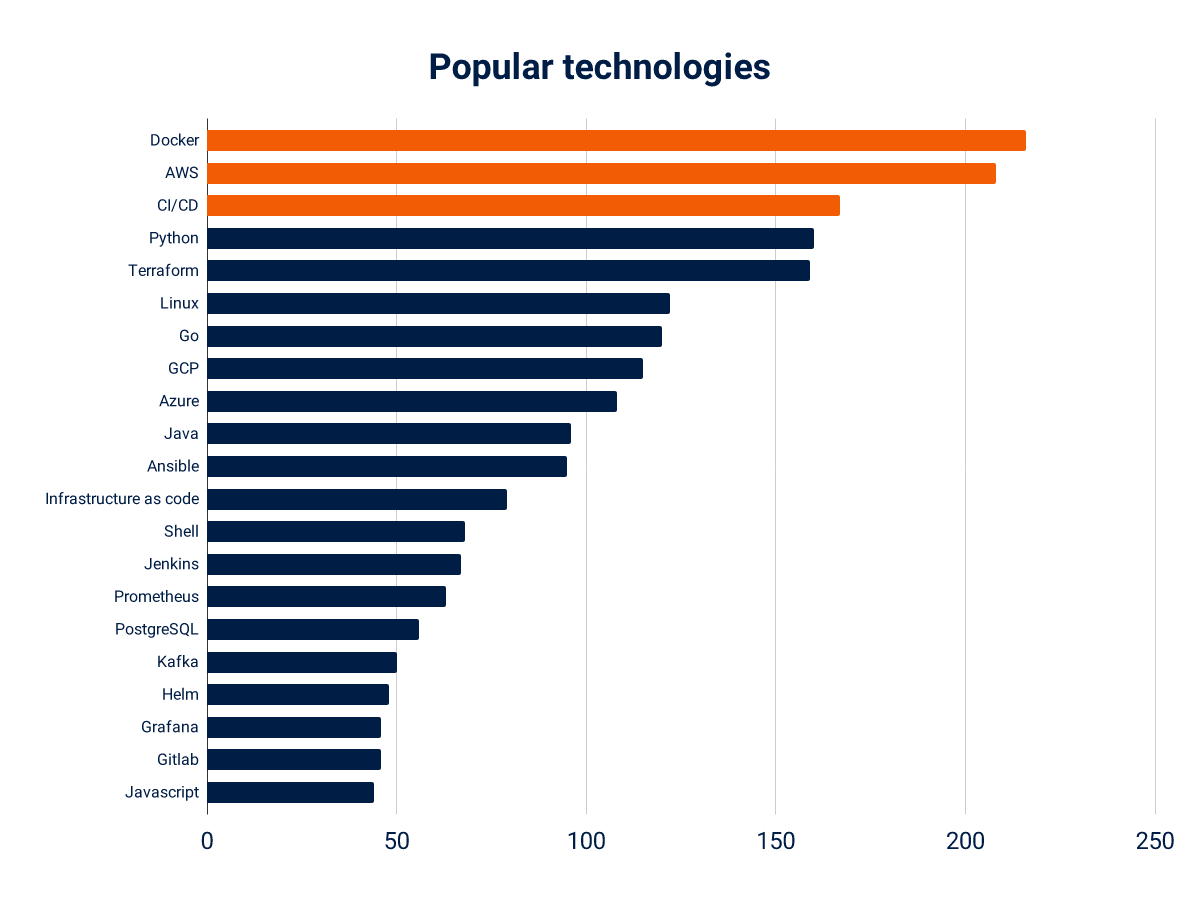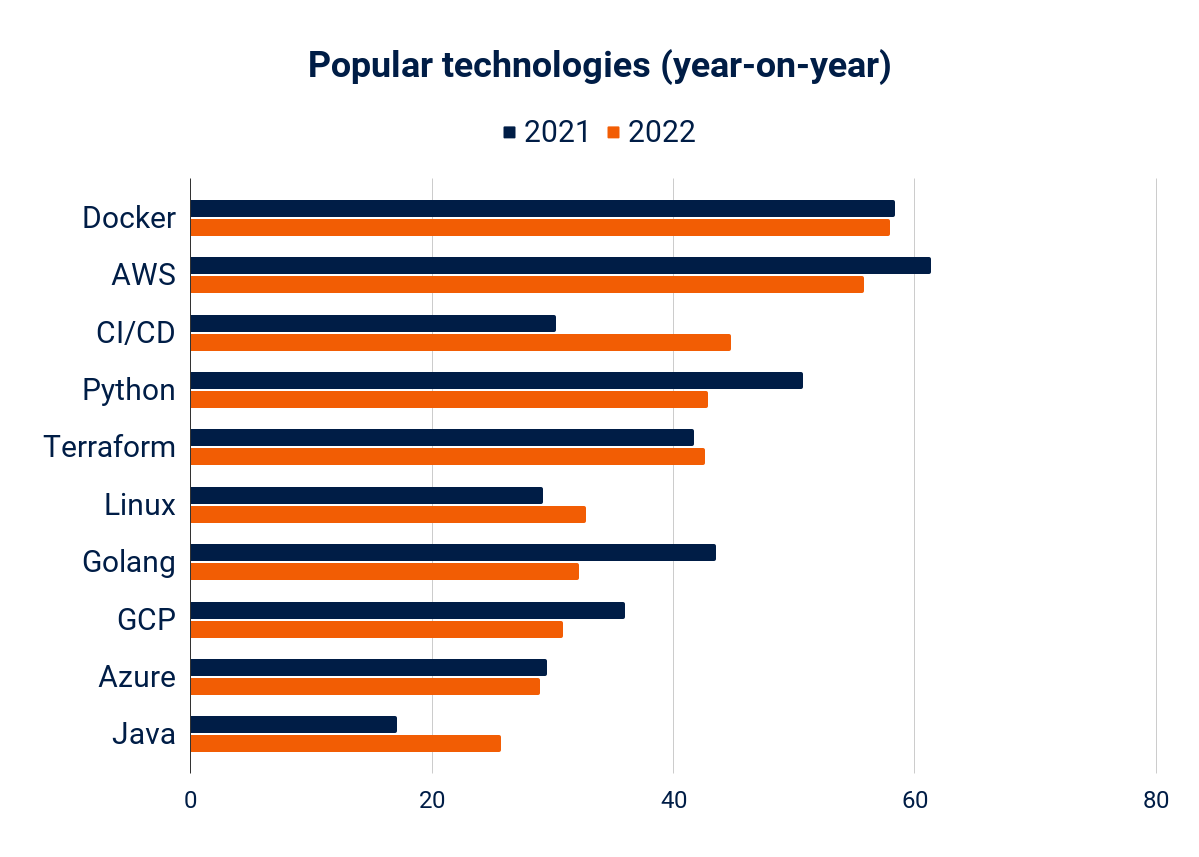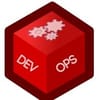Looking to land a job in Kubernetes? Check out our latest blog post on the most popular in-demand technologies you need to know.
Which technologies are popular with Kubernetes jobs?
Of the popular ones, which ones should you really invest your time in learning?
The best way to get answers to the above questions (and perhaps more) is with solid data.
Recently, Kube Careers released their Kubernetes job market trends report for 2022, and here's what it says about popular technologies mentioned in Kubernetes job descriptions.
Before we go ahead, here are a few points to keep in mind with this dataset:
Kube Careers is a Kubernetes job board that only publishes jobs which:
- Have Kubernetes as a requirement and not a nice to have, or a plus.
- Have a clear salary range (this is mandatory).
- Are not sourced from recruitment agencies.
Please keep the above points in mind as we look into the data.
On we go!
Which technologies (other than Kubernetes) are popular for Kubernetes jobs.
What unfolds is interesting to say the least!

The most popular choices of technology among Kubernetes engineers are:
Programming languages: Python, Go and Java.
- What's interesting here is there were 737 tags for programming languages from 373 job descriptions - meaning job descriptions mentioned more than one programming language requirement.
- Of the 737 tags for programming languages,
- 160 (more than 21%) of these were for Python,
- 120 (16%) were for Golang
- and 96 (13%) were for Java.
- If you want to master one programming language for your next Kubernetes job, choose Python.
Cloud platforms: AWS, GCP and Azure (in that order).
- Of the job descriptions that mentioned their infrastructure location, more than 40% of these cited AWS as their preferred infrastructure location.
- It was followed by GCP and Azure in the second and third place with 22% and 21% representation respectively.
- AWS has been the preferred infrastructure location in almost all of Kube Careers' quarterly reports.
Infrastructure as Code: Terraform.
- Terraform was mentioned as a requirement in 159 (37%) job descriptions!
- Database management: PostgreSQL.
- Of the 373 job descriptions, 56 (more than 15%) of these mentioned a requirement for PostgreSQL experience.
CI/CD: Jenkins.
- Experience with Continuos Integration/Continuos Deployement tools is quite popular among Kubernetes jobs with more than 55% of the descriptions stating it as a requirement.
- Of the job descriptions that specified a CI/CD tool, Jenkins was the most popular specific tool requirement with 21% representation.
- The other mentions were
- Gitlab (22%)
- Azure DevOps (7%)
- GitHub Actions (6%)
- CircleCI (6%).
Configuration management: Ansible.
- Firstly, more than 56% jobs listed on Kube Careers in 2022 mentioned a need for a configuration manangment tool experience.
- Also, there were 448 mentions of configuration management tools in 373 job descriptions - meaning job descriptions mentioned more than one configuration management tool.
- Ansible was mentioned as a requirement in 95 (more than 22%) of these job descriptions.
Containers: Docker.
Operating systems: Linux.
What's interesting to see is that if you are well versed in AWS, CI/CD, and Python, you are eligible for more than 60% of the Kubernetes jobs!
Which were the popular technologies in 2021?
If we take Kube Careers' 2021 job trends report as a reference, here's what a normalised view of the data between the consecutive years looks like:

So what has changed?
Not much.
Unless you look for the differences you may not find them.
Here are the observations from the year-on-year comparison:
- The mentions for experience in Continuos Integrations/Continuos Deployement (CI/CD) has increased by 14% year-on-year.
- Python and Golang have lost their popularity by almost 8% while Java has gained in popularity by 8% year-on-year.
- Every other technology seems to have stayed almost constant year-on-year.
Conclusion
Hope you got a glimpse into the Kubernetes job market, and what the companies are actually looking for.
Did you find the article useful? Anything in particular that we could improve? Please let me know in the comments section below.
If you are learning Kubernetes journey, checkout the 40+ Kubernetes Tutorials for Beginners


